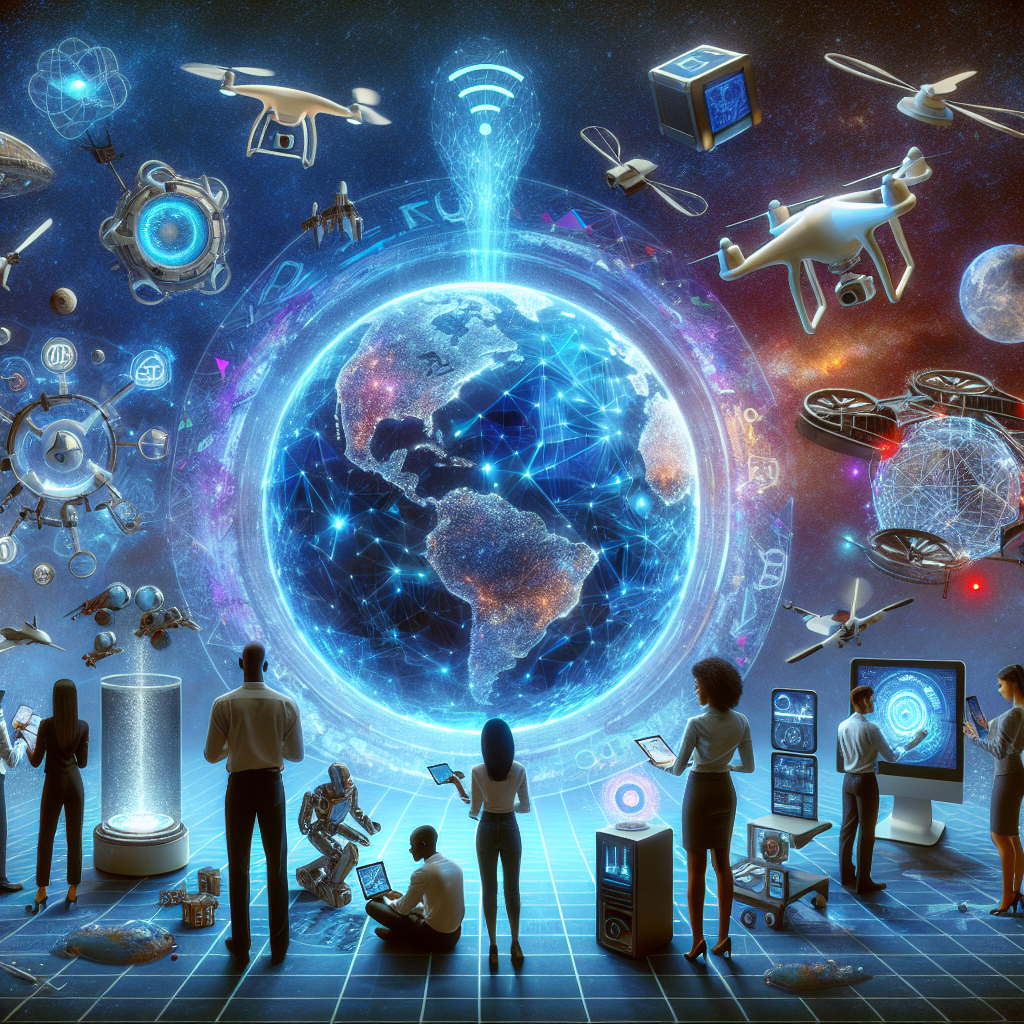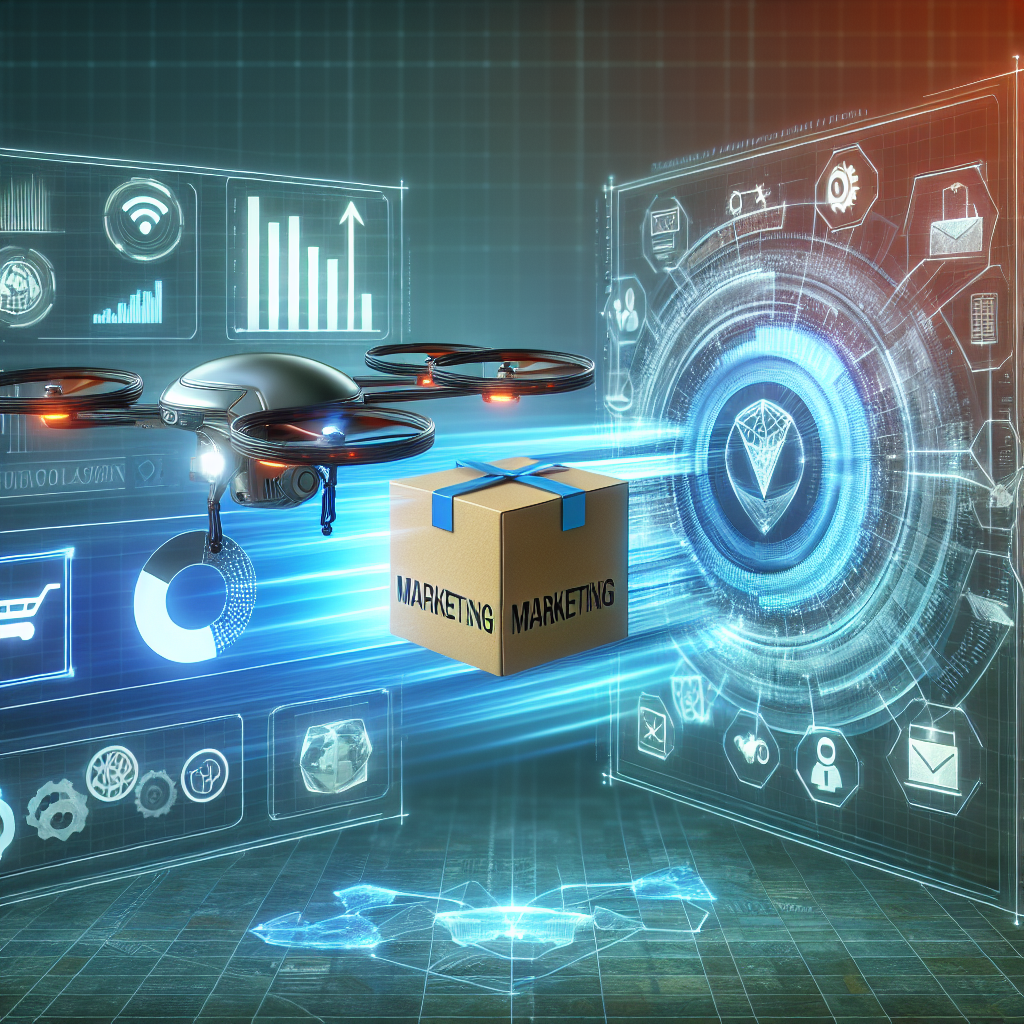Table of Contents
Emerging Technologies Shaping the Future of Marketing

The landscape of marketing is undergoing a seismic shift, driven by rapid advancements in technology. As businesses strive to stay competitive and relevant, understanding and leveraging emerging technologies is becoming crucial. This article explores the various technologies that are shaping the future of marketing, offering insights into how they can be utilized to enhance marketing strategies and create more engaging consumer experiences.
Artificial Intelligence (AI) and Machine Learning
Artificial Intelligence (AI) and its subset, Machine Learning (ML), are at the forefront of transforming marketing strategies. These technologies are enabling marketers to analyze vast amounts of data to glean insights about consumer behaviors, preferences, and trends.
- Personalization: AI powers personalized marketing at scale, allowing companies to tailor their messaging and offers to individual consumers based on their previous interactions and preferences.
- Chatbots and Virtual Assistants: AI-driven chatbots and virtual assistants are being increasingly used for customer service and engagement. They provide instant responses to customer queries, improving the customer experience and freeing up human resources for more complex tasks.
- Predictive Analytics: Machine learning models can predict customer behaviors, such as when they are likely to make a purchase or unsubscribe from a service. This allows marketers to create more effective campaigns aimed at retaining customers or encouraging purchases.
For example, Netflix uses AI to personalize recommendations for its users, significantly enhancing user engagement and satisfaction. Similarly, Amazon leverages predictive analytics to suggest products to users, increasing the likelihood of additional purchases.
Augmented Reality (AR) and Virtual Reality (VR)
Augmented Reality (AR) and Virtual Reality (VR) are redefining the way brands interact with consumers. These technologies offer immersive experiences that can lead to deeper engagement and a better understanding of products.
- Virtual Try-Ons: AR technology allows customers to visualize products in a real-world context. For instance, furniture retailers like IKEA offer apps that let customers see how a piece of furniture would look in their space before making a purchase.
- Immersive Experiences: VR can transport users to different worlds or experiences, enhancing brand storytelling. For example, travel agencies use VR to give potential travelers a glimpse of their vacation destinations.
These technologies not only enhance the customer experience but also provide marketers with valuable data on user interactions and preferences, which can be used to refine marketing strategies.
Internet of Things (IoT)
The Internet of Things (IoT) connects everyday objects to the internet, allowing them to send and receive data. This connectivity is opening new avenues for marketing by turning every connected device into a potential marketing platform.
- Smart Appliances: Companies can send personalized advertising messages directly to consumers through their smart devices at home. For example, a smart refrigerator could suggest recipes based on the items it contains, along with promotional offers for missing ingredients.
- Wearable Technology: Wearables provide continuous data on user health and activities, which can be used for personalized health and fitness marketing.
IoT not only facilitates more personalized marketing but also enables real-time consumer data collection, which can be used to enhance product offerings and customer service.
Blockchain Technology
Blockchain is gaining traction in the marketing world due to its ability to ensure transparency and security in transactions. It can significantly impact how consumer data is handled and how ads are bought, sold, and measured.
- Data Security: Blockchain provides a secure platform for storing customer data, reducing the risk of data breaches.
- Ad Fraud Reduction: It can help in reducing ad fraud by verifying that ads are viewed by real people and not bots.
For instance, Unilever has utilized blockchain to manage ad reconciliation, helping the company save money and reduce fraud in its digital advertising efforts.
5G Technology
The rollout of 5G technology is set to revolutionize mobile marketing by providing faster data speeds and more reliable internet connections. This will enhance mobile-based marketing strategies and enable the use of more complex and data-intensive applications.
- Enhanced Mobile Experiences: Faster loading times and smoother interactions on mobile devices will improve user engagement and retention.
- Advanced Augmented Reality: With 5G, AR applications can run more smoothly, providing more immersive and interactive user experiences.
5G will not only improve existing marketing technologies but also pave the way for new innovations that can transform how brands interact with consumers.
Conclusion
The future of marketing is being shaped by a range of emerging technologies, each offering unique opportunities for engagement, personalization, and efficiency. From AI and ML to AR/VR, IoT, blockchain, and 5G, these technologies are setting the stage for a new era in marketing. By embracing these innovations, marketers can not only enhance the consumer experience but also gain deeper insights into consumer behaviors, streamline operations, and secure customer data. As these technologies continue to evolve, they will undoubtedly open new avenues for creative and effective marketing strategies.
Understanding and integrating these technologies into marketing strategies will be crucial for businesses looking to stay competitive in a rapidly changing digital landscape. The future of marketing is here, and it is teeming with technological possibilities that promise to transform the industry.


